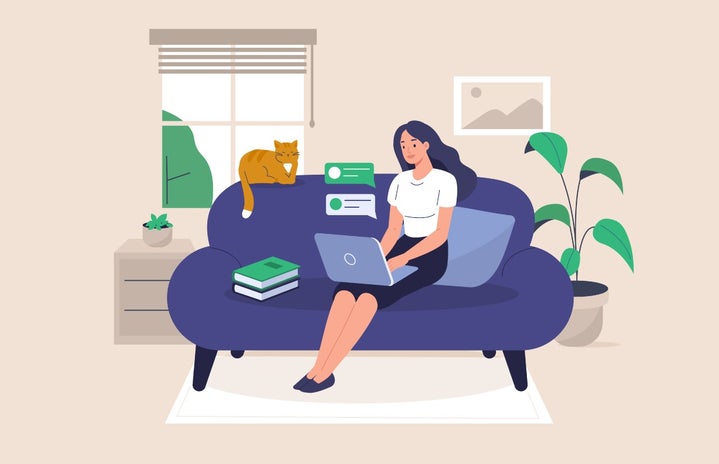My parents have been telling me for years that I need to start keeping track of my spending so that I can establish a budget for myself. I thought that this sounded like a decent idea, but I knew I didn’t want to put any time toward doing that – and I definitely didn’t want to reflect on my spending habits when I already know that I allot all of my money to Starbucks, Uber Eats, alcohol and the godforsaken utility bill.
On top of the pure disinterest in admitting to myself what I really wasted my money on, I imagined that creating my budget would be difficult since I had never learned about budgets in school and I had little knowledge of finance, accounting or anything related to handling money.
Truthfully, I decided that I wanted to get organized and begin assessing my own budget after watching several hours of Money TikTok. I watched all these TikToks about ways to save money every day, and they talked a lot about investing and saving money for the future. Naturally, this overwhelmed me – the thought of the future makes me positively nauseous. Despite this sick feeling, I was intrigued by what I was learning in the depths of my TikTok scrolling, so I decided that I should at least try to have a better understanding of my money and expenses, and I really love the result.
Before I get into exactly how to approach starting this task, what I really enjoy about starting a budget is that it makes banking less daunting. Having all of my expenses listed in tiny boxes right in front of me helps me to realize that money doesn’t have to be this grey area that makes me nervous or uncomfortable, it can be quite black and white once you get the hang of it.

Perhaps not everyone feels that money can be an uncomfortable topic, but I’ve always felt very stressed when I think about paying bills such as my credit card, utilities, Wi-Fi, or even buying groceries, even though fortunately I have enough money to be able to pay for them. Money can be an uncomfortable topic because life is expensive, and it often feels like living day to day is nearly impossible on the financial plan of a student. In reality, the reason that money can be uncomfortable for me is that I have never really laid it all out for myself. I feel a certain level of insecurity about every one of my purchases because I don’t know whether I can afford it – especially since I don’t know how much money I’ve spent this month compared to months prior, and I don’t know whether my income is higher or lower this month than it was the last. This kind of uncertainty is what causes me the most stress, which in turn makes me procrastinate in paying my bills or even buying things that I need because although I know I will eventually need to spend that money, I don’t want to see it leave my bank account just yet.
This is not a sustainable way to live, financially. Also, it doesn’t promote healthy habits such as paying bills on time, and it encourages procrastination.
Therefore, these are many of the reasons I would recommend starting a budget for yourself, but ultimately it can help you to have a better relationship with money, and I think that’s a really important thing to grasp.

Firstly, establish your monthly income. Estimate how much you have coming in each month so that you can deduct your expenses from that.
Next, make a list of your expenses. I found it helpful to put them into groups, such as Housing, which can have the subcategories of rent, utilities, Wi-Fi etc. Next could be food which might include subcategories such as groceries and eating out. A complete list could be found here which is the site I used to set up my budget, which has pictures and detailed instructions, this is just a summarized version.
After I made all of my categories and subcategories for all the expenses I could think of, I estimated how much I spend or how much I want to spend on each of them every month. I made sure to include money spent on leisure such as entertainment, clothes, shoes and miscellaneous items I might buy.
Then I totalled my expenses and subtracted them from my income. The money I have leftover is what I intend to put into savings.
Even if your very first budget is not completely accurate, or if it’s far from what your ideal spending might be, don’t be discouraged. The whole point of spending time making this budget is to put spending into perspective and help you realize that maybe you spend a little more on Amazon orders each month than you’d like to, or perhaps it shows you that you actually have a little more spending money than you thought you did.



